Strong Leadership Required to Fix Rhode Island’s ‘Broken’ Transportation System
August 15, 2022
A group of 36 organizations, in late July, sent an 8-page letter to Rhode Island’s gubernatorial candidates outlining their concerns about the state’s transportation system and recommending policies they believe the next administration needs to adopt.
The signers are a collection of nonprofits and community groups whose missions include transportation reform, environmentalism, racial justice, renewable energy, affordable housing, and public health.
The letter was sent to eight gubernatorial candidates: Democrats Matthew Brown, Helena Buonanno Foulkes, Nellie Gorbea, Daniel McKee, and Dr. Luis Daniel Muñoz; Republicans Ashley Kalus and Jonathan Riccitelli; and Independent Zachary Baker Hurwitz.
David “Jonesy” Mann, transit advocate and the letter’s lead author, said the idea for the letter was largely born out of years of the state stonewalling transportation progress. He noted that with unprecedented amounts of funding available from the federal government, it is vital that the state commit to a 21st-century transportation vision for Rhode Island that “supports people of all ages and abilities, the planet, and our local economy.”
“The next governor will have an opportunity to make major changes,” he said. “There’s a big opportunity for the next governor to make a lot of improvements.”
ecoRI News recently spoke with Mann and representatives from four organizations that endorsed the letter: April Brown, interim director of Providence’s Racial & Environmental Justice Committee; John Flaherty, deputy director of Grow Smart Rhode Island; Kathleen Gannon, board chair of the Rhode Island Bicycle Coalition; and Barry Schiller of Rhode Island Transit Riders. They all noted the state’s transportation system is broken and not built to serve the transit needs of the 21st century.
“Rhode Island’s outdated transportation system is failing to keep pace with the needs of our residents, our economy and our planet,” according to the July 27 letter. “We believe that Rhode Islanders deserve a transportation system that provides for their diverse mobility needs, reduces air pollution, improves local economic development, supports affordable housing development, and cuts greenhouse gas emissions.”
The letter focused on the way Rhode Island moves about because without significantly reducing the greenhouse gases spewed from the transportation sector — the largest emitter of climate emissions in the state — the mandates in the 2021 Act on Climate law have no chance of being met, according to the letter’s signers.
“Every single person in this state is affected by the transportation system,” Gannon said. “If we can work on fixing the transportation system, we can improve the lives of every single person in some kind of way. It’s a central issue for so many reasons.”
The five people ecoRI News spoke with on Aug. 8 also noted how closely transportation is associated with other environmental justice issues, including public health and affordable housing, and a how it is an issue of concern for many people who live and work in Rhode Island.
“When we were talking with folks, transportation was really one of the top 10 priorities that people were concerned with, particularly when you start to talk about frontline communities,” Brown said.
She noted improving the state’s non-car transit system needs to start with better support and funding for the Rhode Island Public Transit Authority.
“One of the challenges in Rhode Island, and in Providence in particular, is the RIPTA service and the fact that sometimes it doesn’t even feel like a service, it feels sometimes like it’s running against you, particularly if you work at certain times of the day like third shift and there’s no service,” Brown said.
Here are the issues and the “bold changes” the letter highlights, along with ideas, thoughts, and comments from the people ecoRI News recently spoke with:
Public Health and Safety
Gasoline- and diesel-burning vehicles are a leading cause of air pollution that causes health problems in vulnerable communities. Several Rhode Island counties have received “D” and “F” grades for ozone pollution from the American Lung Association, and many people, especially children, suffer from respiratory diseases as a result.
According to the Rhode Island Department of Health, nearly 11% of kids in Rhode Island have asthma, and Black and Latino children suffer from asthma about 3 times more frequently than white children. Respiratory health outcomes are worst in neighborhoods near highways.
Meanwhile, the state’s roads have been designed first and foremost to accommodate high speeds, which enables and encourages reckless driving. In our small state, 60 people are killed by automobile crashes and more than 300 are seriously injured annually. One out of every four of those who are killed are struck by drivers while walking or biking. These deaths and injuries are avoidable; roads can be designed to discourage speeding and protect other users.
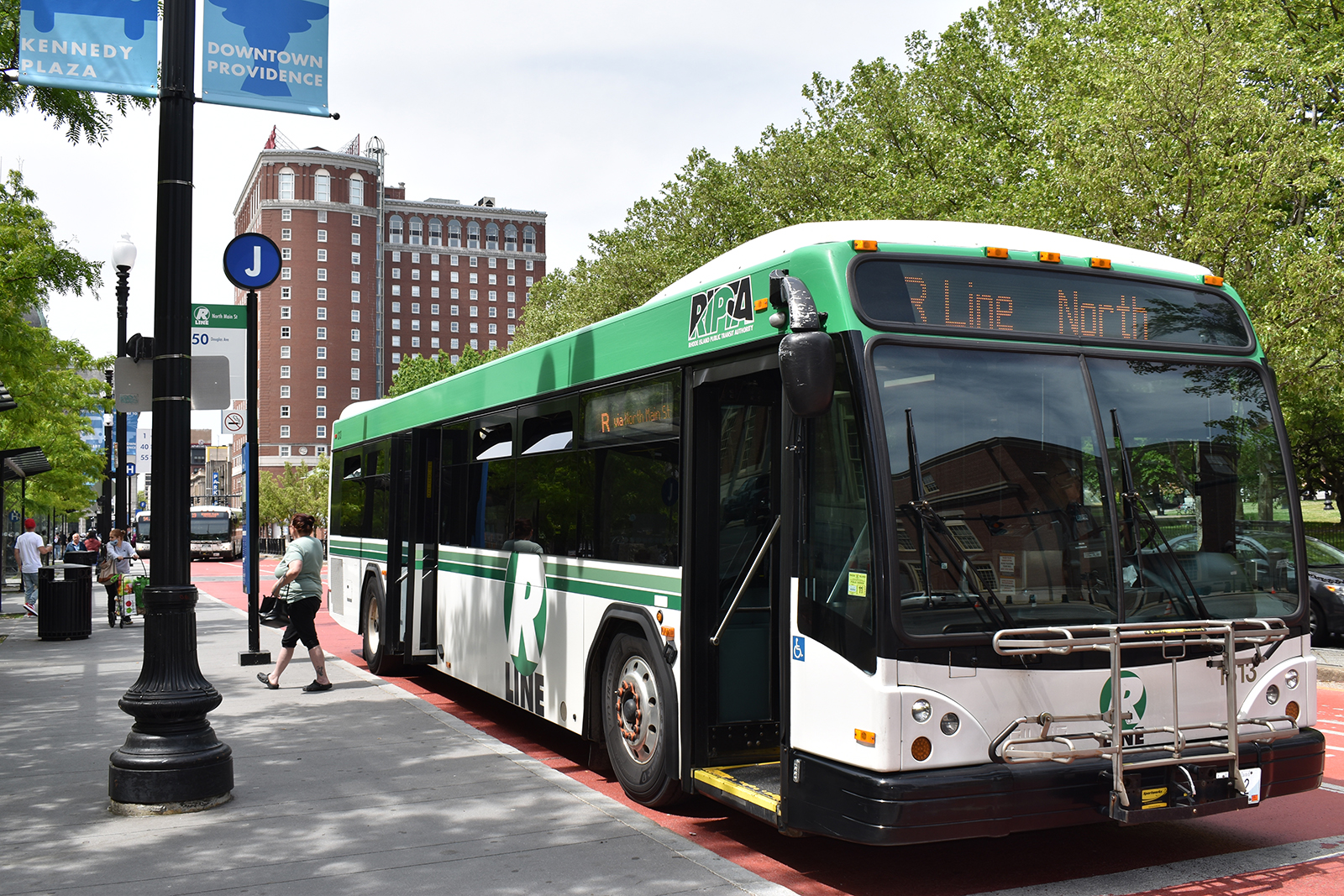
Affordability and Freedom of Choice
Too many Rhode Islanders are stuck in traffic and stuck paying high prices for gas, insurance, and car maintenance. We have the highest cost of car ownership in New England and a lower median income than our neighboring states, leaving many households overly burdened with transportation costs.
Meanwhile, the state hasn’t invested adequately in alternatives that would allow people to get out of traffic and save money. Public transit does not run frequently enough or go to enough places to be a workable option for many people, despite 77% of the state’s population living within a 10-minute walk of a transit stop.
Sidewalks are often crumbling or nonexistent, and are not protected from high-speed traffic. Our bicycle network is an incomplete patchwork that requires riding on dangerous roads. Most Rhode Islanders don’t have freedom of choice in their transportation: if they want to get to work, school, or the grocery store, they have no choice but to pony up the cost for gas, insurance, and car payments.
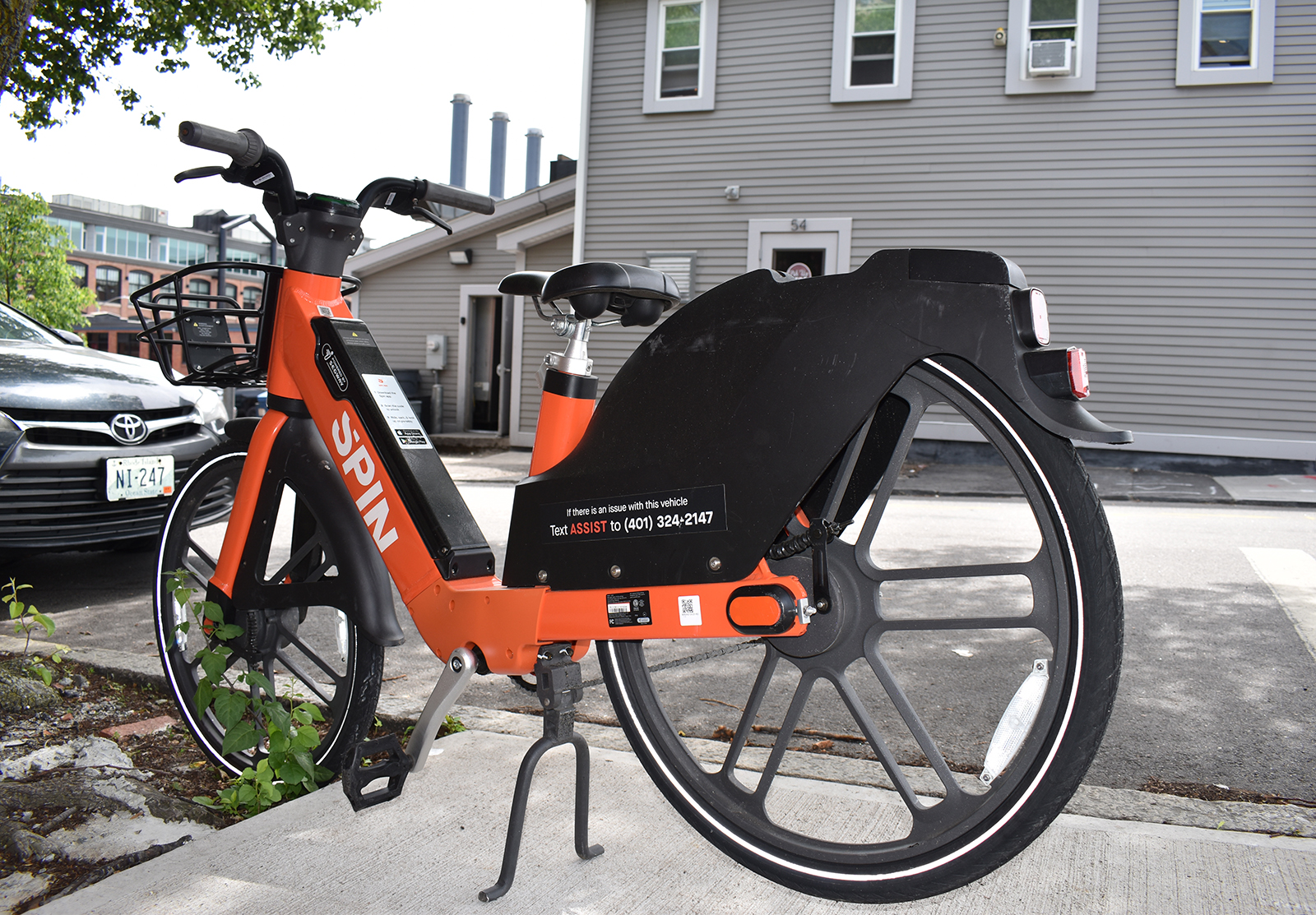
Racial, Economic, and Mobility Justice
In its pursuit of a car-centric transportation system in the 20th century, the state of Rhode Island and its cities repeatedly displaced low-income people of color against their will. Postwar urban renewal projects and highway construction demolished entire neighborhoods of predominantly Black and brown residents. Providence alone lost tens of thousands of units of housing.
Today, our car-centric transportation system leaves behind everyone who is unable to drive. This includes everyone younger than 16, those who can’t afford a car, people with visual impairment and mobility challenges, many immigrants and refugees, and many elders. Nine percent of Rhode Island households don’t have access to a car. Many of these people are reliant on a transit system with limited hours and limited areas of service, or must walk on sidewalks or bike on streets where dangerous design leaves them in fear of being struck by a car.
We all deserve to live in a state where an elder can walk safely to a corner store, where a child can walk or bike to school, and where people who don’t drive can take transit to work no matter what hour their shift starts or ends.
Climate Change
Global warming presents an existential crisis for the Ocean State. Many of our coastal communities face rising sea levels and storm surges that will put neighborhoods underwater and eliminate the economic engines of our beach towns. We must take part in the global effort to reduce emissions. The Legislature took a good step by passing the Act on Climate in 2021, which mandated economy-wide reductions in greenhouse gas emissions and gave state agencies the authority to create regulations to meet these targets.
As transportation is the largest emitting sector, responsible for 35% of total climate emissions, Rhode Island needs a multi-agency effort to transition to a low-carbon transportation system. We must reduce our dependence on gasoline by creating better alternatives to driving and by electrifying all vehicles as quickly as possible.
Brown noted the Rhode Island Department of Transportation (RIDOT) routinely stands in the way when it comes to mitigating the climate crisis — what she repeatedly called an emergency — and eradicating climate injustices.
“The current officials for that department are just profoundly and deeply entrenched in this idea that they don’t have to come to the community they serve with any kind of transparency in the work they do and the decisions they make,” she said.
Flaherty said RIDOT has “an outsized influence over” the two entities that make a lot of the state’s transportation decisions: the State Planning Council and the Transportation Advisory Committee, of which Flaherty is the vice chair. Members are appointed by the governor.
“I’m not even sure if governors typically even are really that involved, so we saw the opportunity with the election to really appeal directly to the governors, calling on them, the candidates, for leadership, to stand up and say we’re going to take this in a different direction,” he said. “Whoever wins needs to direct those bodies, the entities, the state departments to make this happen. With the election on the horizon, there’s an opportunity to compel the candidates to exert some leadership.”
Schiller noted Rhode Island is moving forward in some areas when it comes to addressing the climate crisis.
“We’re making progress in the electricity sector, we’re making some progress on green buildings, but transportation we’re still going backwards,” said Schiller, a former RIPTA board member. “They’re still expanding highways, they’re not improving transit, our bike program is pretty much stalled at the state level.”
Housing
Rhode Island is in the midst of a housing shortage, and car-centric development requirements are hampering our ability to build homes to meet the needs of all Rhode Islanders. Zoning requirements in cities and towns across our state require large amounts of parking be built along with new homes, even in places where there are good alternatives to car ownership.
In many new housing developments, more land area is devoted to parking than living space. Parking requirements increase the cost of new buildings and reduce the space available for housing units. This is unacceptable at a time when Rhode Islanders are struggling to find homes to live in. We need to prioritize homes for people over storage space for cars.
Local Economic Development
Our car-dependent transportation system harms economic development in our state, both in our local business districts and our major job centers.
Local Business Districts
The success of local business districts rests on customers who walk, bike, and take the bus. Picture any of our state’s beloved business districts — Main Street in Warren, Thames Street in Newport, Westminster Street in downtown Providence, High Street in Westerly — and you will see streets that are full of people and closely tucked businesses, with minimal space given to parking lots. These places are both successful and adored precisely because they prioritize space for businesses and people over space for cars.
Reverse the priority — put space for cars ahead of everything else — and you end up with strip malls, places with dangerous roads, many out-of-state businesses, and low economic productivity. Our neighborhood business districts and village centers will thrive and grow when we make it easy and safe for more customers to get to them on foot, by bus, and by bike.
Major Job Centers
Rhode Island’s major manufacturing centers have been booming, but face a double challenge: difficulty hiring enough workers and lack of commuter transportation options. The Providence Business News recently reported that Rhode Island has been adding thousands of manufacturing jobs in places like Quonset Business Park, but that many of these jobs remain unfilled. A key challenge is their distance from where people live.
The Rhode Island Manufacturers Association is partnering with cities and towns to offer public transit options that connect their residents to these jobs. The Rhode Island Public Transit Authority is testing commuter routes to Quonset, but this is a pilot program without long-term funding. Providing frequent, high-quality public transit options to our major job centers is a win-win-win that will fuel our manufacturing economy, connect Rhode Islanders to quality jobs, and reduce traffic and fossil fuel emissions.
Dollars Lost to Gasoline
Rhode Island has no crude oil reserves, nor does it produce or refine petroleum. This means the money Rhode Islanders spend on gasoline and diesel leaves our state’s economy to the benefit of out-of-state oil producers. In 2019, Rhode Islanders consumed 368 million gallons of gas, which translates to $800 million that left the state’s economy — compared to $124 million collected in state gas taxes. A transition away from gasoline will keep these dollars here.
Path Forward for R.I. Transportation
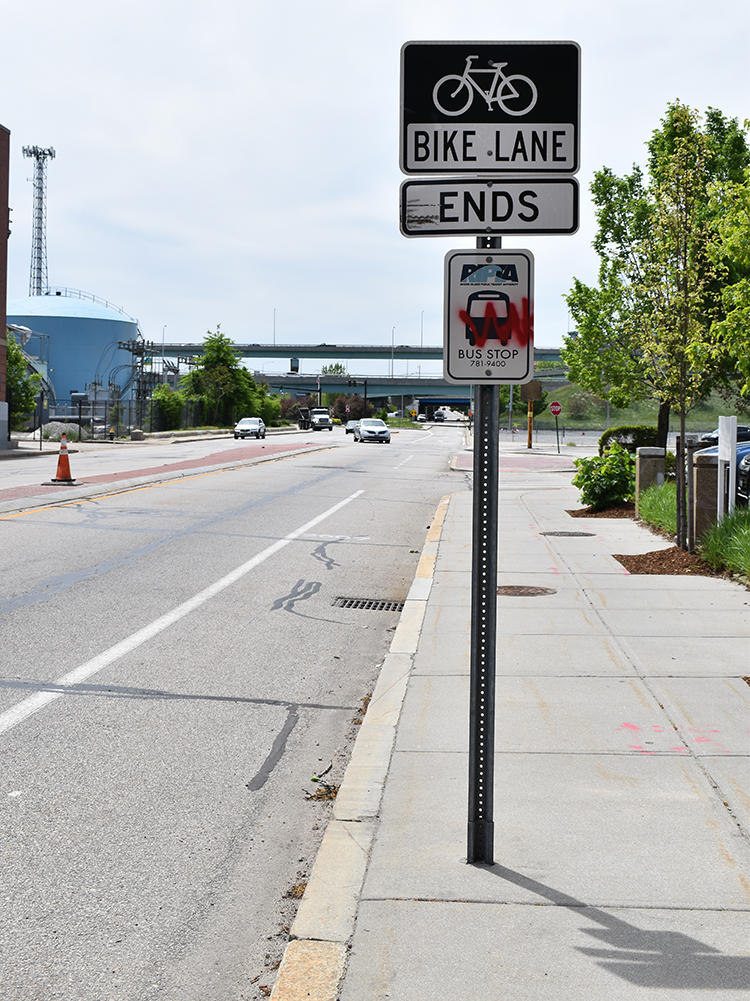
RIDOT can be a force to address intersecting issues of affordability, health, mobility, economic development, and climate change — if the next governor will lead the way.
RIDOT made it clear in this year’s “minor amendment” to the State Transportation Improvement Program that it prioritizes not only repairing bridges and highways, but widening them and adding travel lanes. While maintaining a state of good repair for roads and bridges is essential, road expansion projects exacerbate air pollution, greenhouse gas emissions, and roadway injuries and fatalities.
We saw RIDOT’s priorities in effect with the 6/10 interchange reconstruction project, where the community in Olneyville called for a neighborhood boulevard that would stitch together neighborhoods that had been divided by the highway. RIDOT overruled the community and is now building an expanded highway interchange that will pollute the air in Olneyville for decades.
We now see RIDOT making plans to widen 5 miles of Interstate 295, using $85 million of federal infrastructure funds that are supposed to be applied in ways that will reduce emissions.
RIDOT does not currently have the expertise, capacity, or desire to prioritize projects that will address affordability, health, mobility, racial inequity, economic development, or climate change. Rhode Island’s next governor must prioritize RIDOT reform.
Thankfully, there are good examples from around the country that we can learn from and emulate:
In 2020, the Massachusetts Department of Transportation adopted a new engineering directive that requires state traffic engineers to include sidewalks, crosswalks, bus stops, and high-quality bike facilities when they design upgrades to major roadways.
In 2021, the Colorado Department of Transportation approved a new rule that will divert $6.7 billion to cleaner transportation projects in the coming decades. The rule will require the Department of Transportation and the state’s five metropolitan planning organizations to measure the climate impact of planned projects and offset them if they exceed a given amount.
We call on Rhode Island’s next governor to take the following actions:
Establish a new vision for RIDOT and restructure the department to deliver a 21st-century multimodal transportation network. RIDOT should be a leading state agency for climate action alongside the Department of Environmental Management and Office of Energy Resources.
Fully fund the necessary state match and execute the state-approved Transit Master Plan to support fast, frequent, reliable, and comfortable RIPTA service that connects the entire state.
Fully fund the necessary state match and execute the state-approved Bicycle Mobility Plan to help cities and towns complete their fragmented bicycle and pedestrian networks.
Work with the Massachusetts Bay Transportation Authority (MBTA) to electrify our commuter rail and increase its speed and frequency of service and make necessary improvements in Rhode Island to make this transformation possible.
Reestablish quarterly public meetings between the RIDOT director and community members to identify issues of concern, establish trust, and improve transparency.
RIDOT’s current director, Peter Alviti, Jr., who was appointed to the position in February 2015 by then-Gov. Gina Raimondo, canceled the community meetings shortly after taking office. The practice dates back to the mid-1990s when Lincoln Almond was elected governor, according to Schiller.
Direct RIDOT to deprioritize highway expansion projects and prioritize maintaining a state of good repair for our roads and bridges and integrating infrastructure for buses, walking, and biking into all state road projects.
Direct RIDOT and the Division of Statewide Planning to establish a “Greenhouse Gas Transportation Planning Standard” that will prioritize projects that reduce climate emissions, as called for in H7851. Every RIDOT project should be analyzed for its climate impacts, and any projects that increase emissions should be required to be offset by projects that reduce emissions.
“One of the underling problems in Rhode Island addressing transportation is that almost everybody drives almost everywhere and as a result the political class is going to cater to the fact the large majority of people drive,” Schiller said. “So it’s very tempting for the politicians to ignore all the stuff we’ve been talking about and pander to the majority that simply wants to drive. Part of the connection we need to make is that even the people who think that they have convenient transportation because they can drive everywhere, they’re affected too. They’re affected by the congestion, they’re affected by the air pollution and the polluting cars and trucks, they’re affected by the climate change impacts — food prices, taxpayer bills for covering the disruptions [floods, wildfire, droughts]. To break through that, we have to make that connection that we’re all affected by not addressing transportation and climate change.”
Here is the list of the 36 organizations that signed the letter: American Planning Association (Rhode Island Chapter); Acadia Center; Black Lives Matter Rhode Island; Blackstone Valley Tourism Council; Bike Newport; Bike Tiverton; Cityside at The Wheeler School; Civic Alliance for a Cooler Rhode Island; Clean Water Action; Climate Action Rhode Island; East Coast Greenway Alliance; Environmental Council of Rhode Island; Friends of the William C. O’Neill South County Bike Path; George Wiley Center; Green Energy Consumers Alliance; Groundwork Rhode Island; Grow Smart Rhode Island; Haus of Codec; Housing Works Rhode Island at Roger Williams University; Latino Policy Institute; Local Return RI; Newport Partnership for Families; Providence Student Union; Racial & Environmental Justice Committee; RAMP: Real Access Motivates Program; Rhode Island Association of Railroad Passengers; Rhode Island Coalition to End Homelessness; Rhode Island Bicycle Coalition; Rhode Island Black Political Action Committee; Rhode Island Interfaith Coalition to Reduce Poverty; Rhode Island Organizing Project; Rhode Island Public Health Association; Rhode Island Transit Riders; Trinity Square Together; Woonasquatucket River Watershed Council; Working Families Party Rhode Island.
Editor’s note: The letter was edited for this story. Here is a link to the original copy.

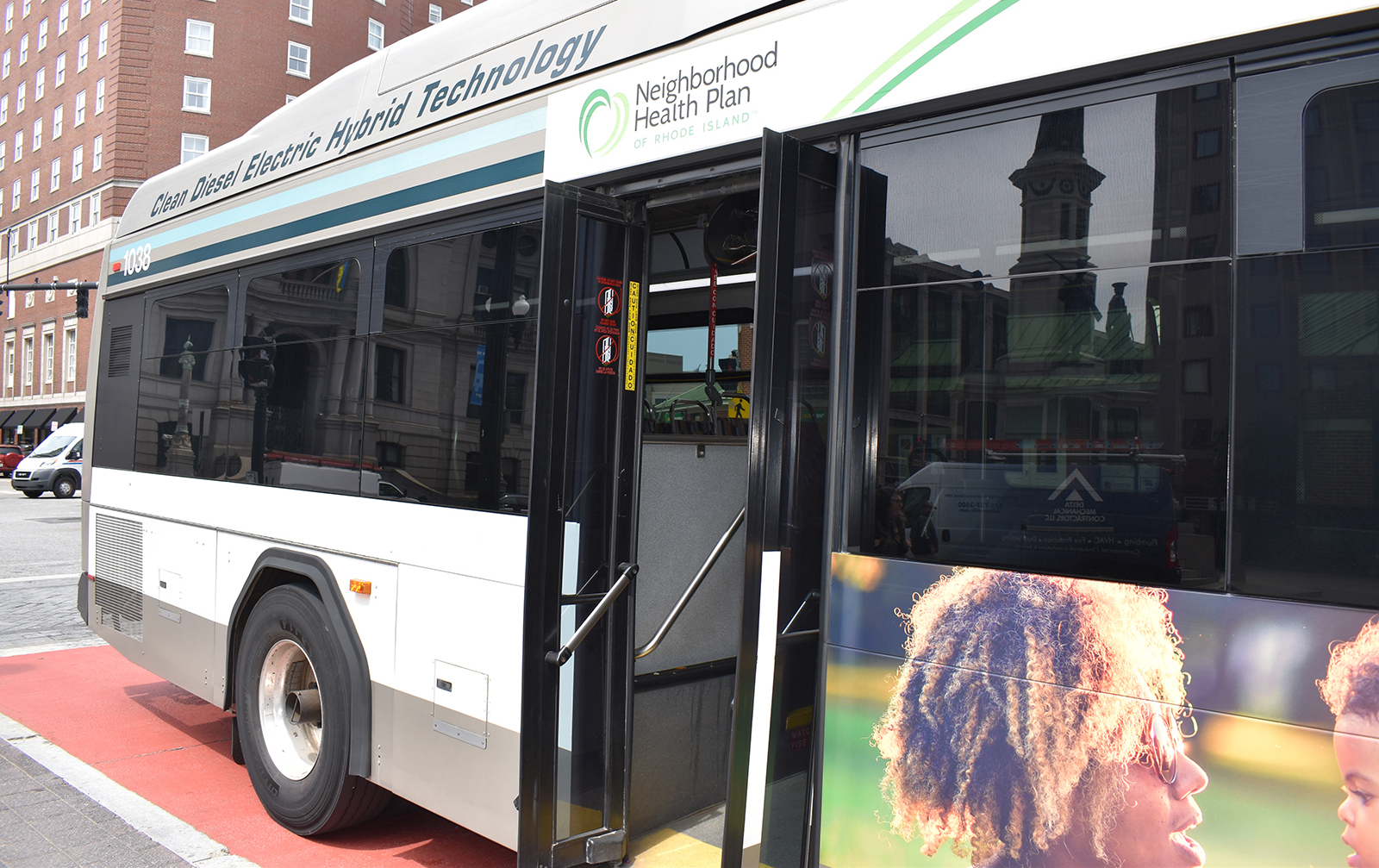
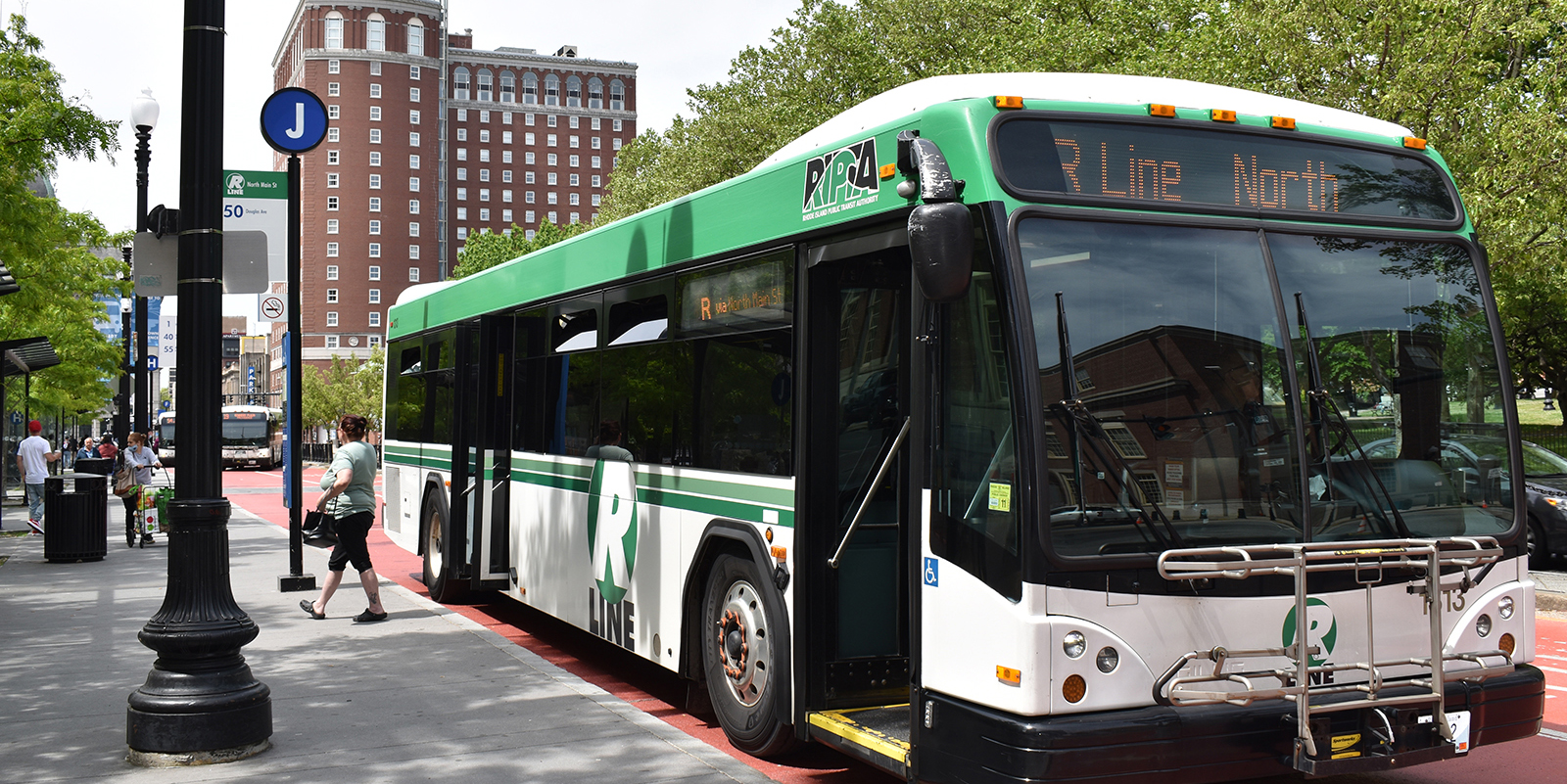
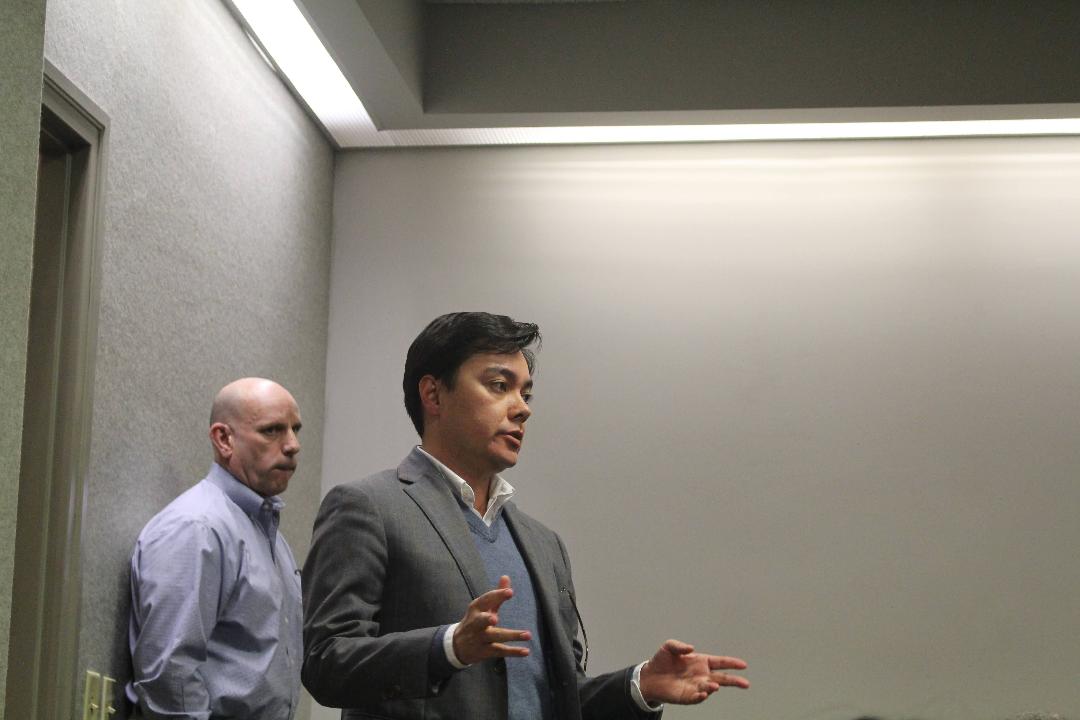
No study is any good if it is allowed to languish on a shelf gathering dust.
This is an insult to the people on the panel that devised that devised the plan.
If the state is serious about improving its mass transit system. It would at the least look over the report with the intent of implementing it starting with the most cost effective portions of the plan that will give the best return for the dollars invested.
Don’t insult peoples intelligence and the value of their time devising a plan to improve our transit system with no intention of implementing their recommendations.